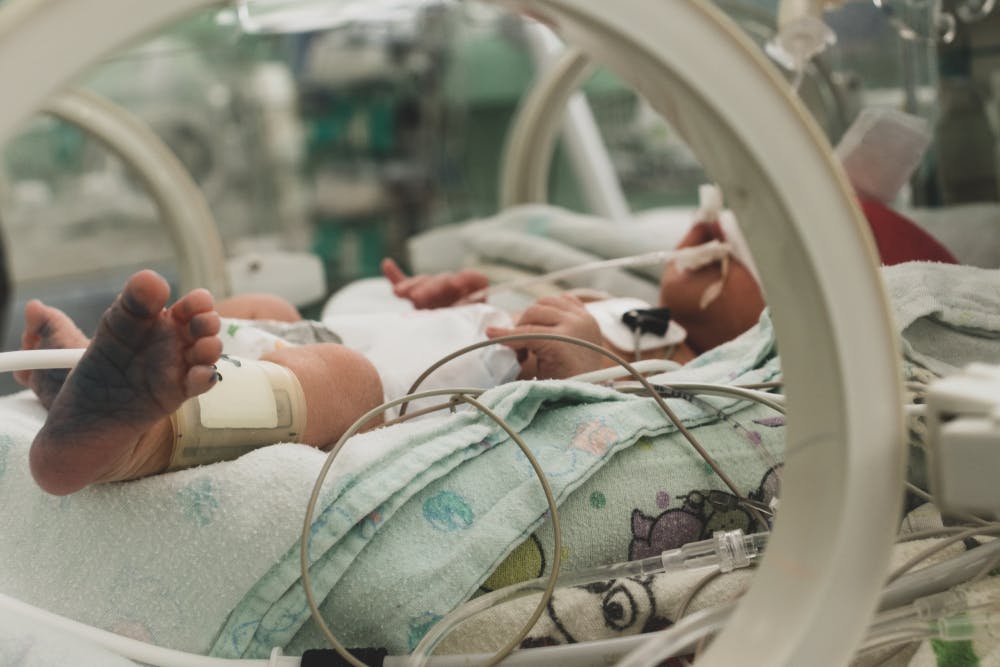
What Diseases can be Transferred in Utero?
The Majority of Babies Are Born Healthy, But Sometimes a Mother Will Pass an Infection to Her Baby During Pregnancy or childbirth.
Expectant mothers have a lot to worry about, and that includes infectious diseases they may pass on to their unborn children during pregnancy or childbirth. Infants have immune systems that are not yet fully developed. As a result, various infections are much more serious when contracted by infants.
Diseases Transferred in Utero
Unborn children will not contract every disease or infection their mother develops during pregnancy, but some can cross the placental barrier. The most common of these include:
- Chickenpox: When an expectant mother contracts chickenpox, it can cause birth defects in the infant, including leg deformities, problems with the kidneys, eye abnormalities, and more.
- Cytomegalovirus: More commonly known as CMV, this disease is very common and is transmitted through saliva and urine and often through sexual intercourse. Infants can contract this infection in utero, which can cause problems with the eyes, brain, liver, spleen, skin, and blood. These complications are more common when a woman contracts CMV prior to the 20th week of pregnancy.
- Hepatitis B: This serious disease attacks the liver and causes a number of symptoms, including jaundice, nausea, and loss of appetite, and this disease can be transmitted from a mother to her unborn child. Nearly 90% of infants exposed to Hepatitis B at birth will develop an infection that can be fatal.
- Coxsackievirus: While expectant mothers will only experience minor symptoms with this illness, it is fatal to unborn babies. This disease can cause inflammation in the muscles of the heart, brain, and spinal cord in infants.
- HIV: The virus that can result in AIDS, HIV is transmitted through sexual contact and when bodily fluids are exchanged with an infected individual. Babies can contract HIV from their mother during pregnancy, childbirth, or while breastfeeding.
- COVID-19: A recent study at the University of Milan in Italy has shown that of 31 pregnant women infected with the novel coronavirus, two passed the infection on to their child during pregnancy.
Unfortunately, these are not the only diseases a child may contract before they are even born. Mothers can also pass certain diseases onto their child during childbirth.
Diseases Transferred During Childbirth
The most common diseases transferred during childbirth include:
- Group B Streptococcal Disease: Mothers often carry the bacteria more commonly known as GBS in their vaginas and rectums, where they are easily transferred to a child during the birthing process.
- Herpes: Many women that contract herpes have very minor symptoms or none at all, but these infections are serious in newborns. Doctors should offer women with chronic herpes medication in the month of their due date, and a C-section can also greatly reduce the likelihood of transmission to the infant during birth.
- Coli: Babies can contract E. coli from their mother as they pass through the birth canal.
- Candidiasis: Also known as thrush, newborns can contract this disease from their mother, either during breastfeeding or during birth, as they move through the birth canal.
Although these diseases are not always preventable, in some cases, prevention is possible. When a doctor can help prevent these diseases, such as by delivering a child via a C-section instead allowing a vaginal birth to proceed, mothers of infected babies should contact an Ohio birth injury lawyer.


